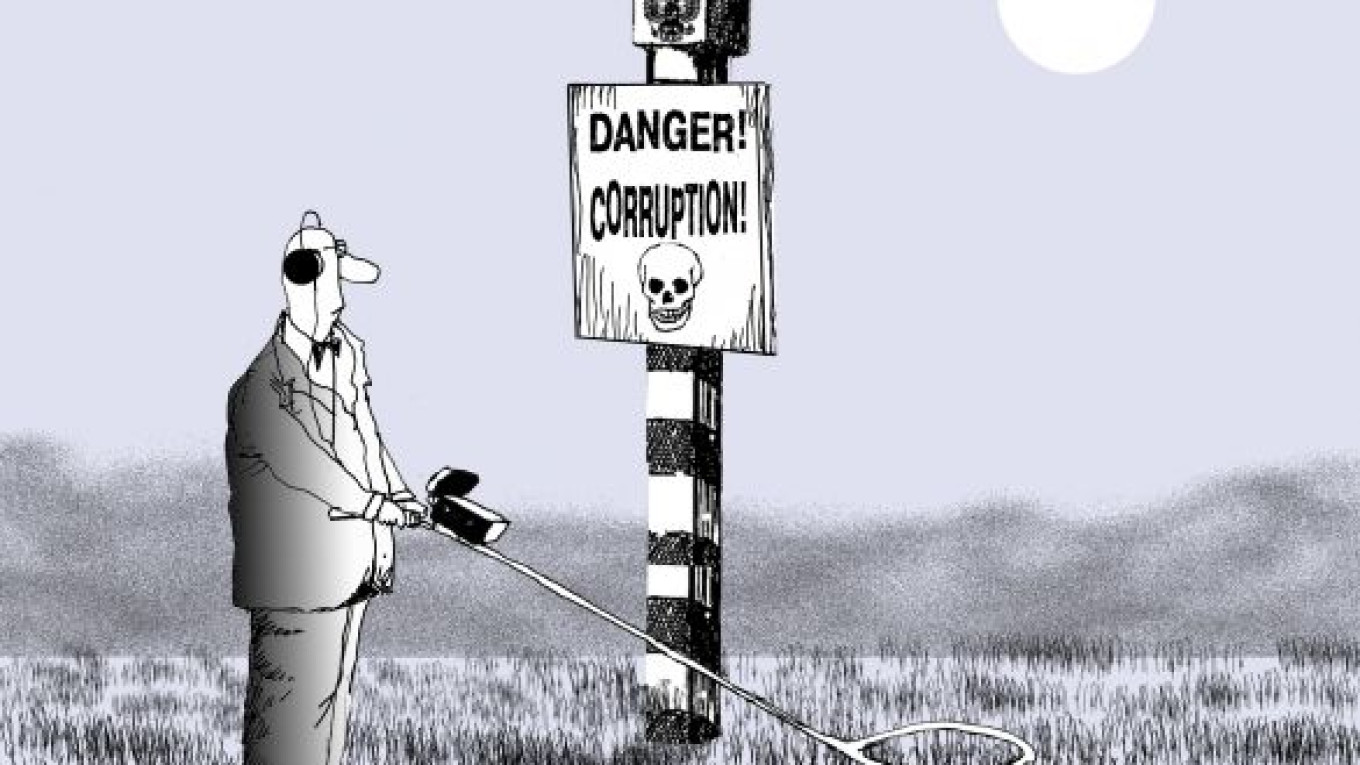Aggressive enforcement of anti-corruption laws, particularly the U.S. Foreign Corrupt Practices Act, or FCPA, is more than ever forcing multinational companies to avoid business practices and business partners that raise corruption risks. It is a fact that Russian companies seeking to do business with U.S. and other foreign companies will be scrutinized by prospective partners seeking assurance that their cooperation will not be tainted by improper payments.
Russian companies must act now if they wish to serve as agents, consultants or other service providers for U.S. companies, if they hope to enter joint ventures with U.S. partners, if they seek to position themselves as takeover targets or merger candidates for U.S. suitors, or if they seek to list shares on a U.S. stock exchange or otherwise undertake business in the United States.
The FCPA prohibits offering, giving or authorizing anything of value — whether cash or other tangible property or intangibles such as personal favors — to any non-U.S. official, including individuals serving state-controlled commercial enterprises, political party or political candidate to obtain some business advantage. The statute also requires companies to keep accurate books and maintain internal controls designed to prevent or detect improper payments.
Why is this relevant? First, non-U.S. companies are also subject to the FCPA if they conduct business in the United States, if their shares are listed on U.S. exchanges, or if they act on behalf of a U.S. company in connection with an illicit payment to a foreign public official.
Mercedes-Benz’s affiliate in Russia recently became the first Russian-based company to face criminal charges under the FCPA. It pleaded guilty in a Washington courtroom on April 2, agreeing to pay more than $27 million in criminal fines to settle charges arising out of bribes paid to Russian officials or relatives of Russian officials, in many cases through shell companies registered in the United States and into or through bank accounts located in the United States.
Second, Russian companies seeking to do business with U.S. partners and others subject to the FCPA must not present compliance risks that outweigh the potential benefits of cooperation. Faced with evidence that a partner is paying or considering bribes in connection with its business, the U.S. company must undertake an internal investigation that can take years to complete and cost tens of millions of dollars. Criminal and civil fines and remediation can add millions more. Given these risks to their reputation and to their bottom line, companies are increasingly saying “no” if they even suspect that a partner may subject them to risks of FCPA liability.
How can Russian companies make sure that they are saying “yes” instead of “no”? First, they must deal with potential compliance problems as quickly as possible and resolve any issues before their prospective partners begin performing due diligence. Second, it is important that companies institute strict and enforceable internal policies to regulate the use of cash, payments to charitable and political organizations at the request of public officials and the questionable use of intermediary companies.
All companies doing business in Russia should? make a commitment to integrity and transparency. This means that if they make or made illicit payments or provided other benefits to any public officials, these practices must stop and remedial methods must be taken as soon as possible.
Russian companies must be committed to the elimination of illicit payments, and the institution of internal controls should be embodied in a comprehensive anti-corruption compliance program. This must be supported by leadership and updated as the company’s business and anti-corruption rules evolve. Employees must believe that there will be real rewards for compliance in terms of compensation and advancement, and there must be real consequences for failure to comply.
Russian companies must ensure that third parties with which it does business are legitimate companies, capable of performing the services for which they were contracted, and not merely conduits for improper payments. To the extent that a third party is connected to a government official, it should be confident that he will not misuse his position for the company’s benefit.
To be sure, compliance with these recommendations involves a major commitment of time and resources and may make conducting business more difficult — particularly in the beginning. But experience shows that the time and resources necessary to resolve problems arising out of official or commercial bribery are much greater.
The commitment to investigating and prosecuting bribery around the world by U.S. and other authorities is a relatively new phenomenon, but it doesn’t appear to be going away soon. Be prepared.
Jonathan D. Nelms practices in the International Trade & Compliance Group at Baker & McKen?zie in Washington. This comment appeared in Vedomosti.
A Message from The Moscow Times:
Dear readers,
We are facing unprecedented challenges. Russia's Prosecutor General's Office has designated The Moscow Times as an "undesirable" organization, criminalizing our work and putting our staff at risk of prosecution. This follows our earlier unjust labeling as a "foreign agent."
These actions are direct attempts to silence independent journalism in Russia. The authorities claim our work "discredits the decisions of the Russian leadership." We see things differently: we strive to provide accurate, unbiased reporting on Russia.
We, the journalists of The Moscow Times, refuse to be silenced. But to continue our work, we need your help.
Your support, no matter how small, makes a world of difference. If you can, please support us monthly starting from just $2. It's quick to set up, and every contribution makes a significant impact.
By supporting The Moscow Times, you're defending open, independent journalism in the face of repression. Thank you for standing with us.
Remind me later.


